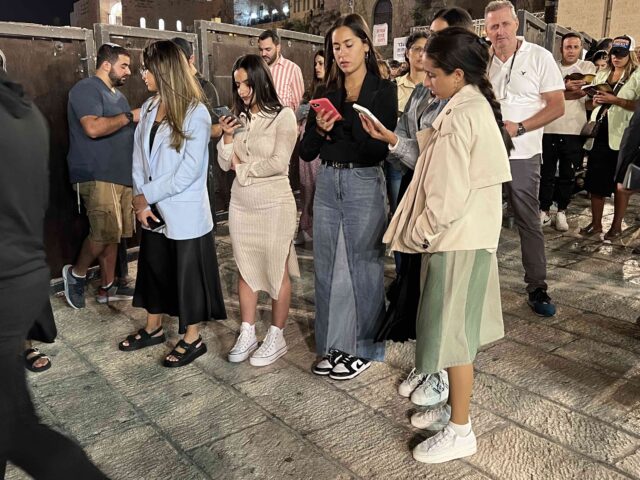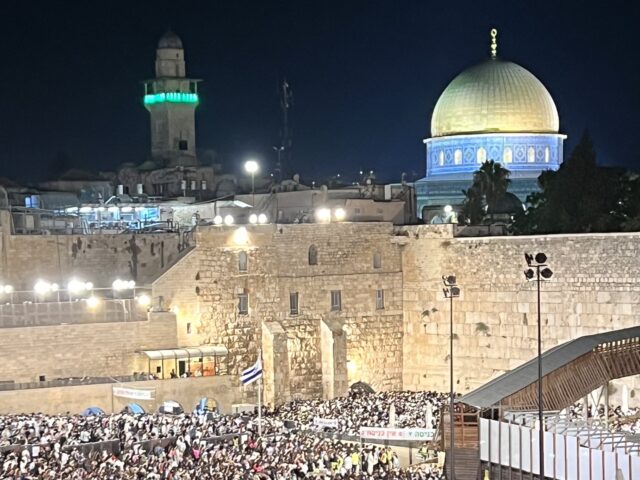JERUSALEM, Israel — Thousands of Jews attended midnight prayers at the Western Wall, the holiest site in the faith, on the last Saturday night before Rosh Hashanah, reciting Selichot, or traditional prayers of penitence.
Rabbis led the crowd in reciting the prayers, and sounded the shofar — a ram’s horn that is meant to remind those who hear it to repent for their sins and improve their lives. (The word “shofar” shares a root with the verb “to improve oneself” in Hebrew.)
Typically, Jews pray three times a day — once in the morning, once in the afternoon, and once at night. Selichot are a rare exception. The fact that they are recited at night is meant to add to the sense of anguish, as if people’s sins are keeping them awake at night.

Girls pray at the Western Wall in Jerusalem, the holiest site in Judaism, during Selichot prayers after midnight, Sep. 10, 2023 (Joel Pollak / Breitbart News)
But the mood at the Wall, while somber, was also joyous.

A dove observes Selichot prayers while perched on the Western Wall, the holiest site in Judaism, in Jerusalem, Israel. Sep. 10, 2023 (Joel Pollak / Breitbart News)
Rosh Hashanah, the Jewish New Year, will be observed on Friday evening through Sunday evening, marking the start of the year 5884 on the Jewish calendar. Though a happy occasion — marked, for example, by eating sweet foods like apples dipped in honey — it is also meant to be a time of reflection and repentance for past misdeeds.
Joel B. Pollak is Senior Editor-at-Large at Breitbart News and the host of Breitbart News Sunday on Sirius XM Patriot on Sunday evenings from 7 p.m. to 10 p.m. ET (4 p.m. to 7 p.m. PT). He is the author of the new biography, Rhoda: ‘Comrade Kadalie, You Are Out of Order’. He is also the author of the recent e-book, Neither Free nor Fair: The 2020 U.S. Presidential Election. He is a winner of the 2018 Robert Novak Journalism Alumni Fellowship. Follow him on Twitter at @joelpollak.

COMMENTS
Please let us know if you're having issues with commenting.